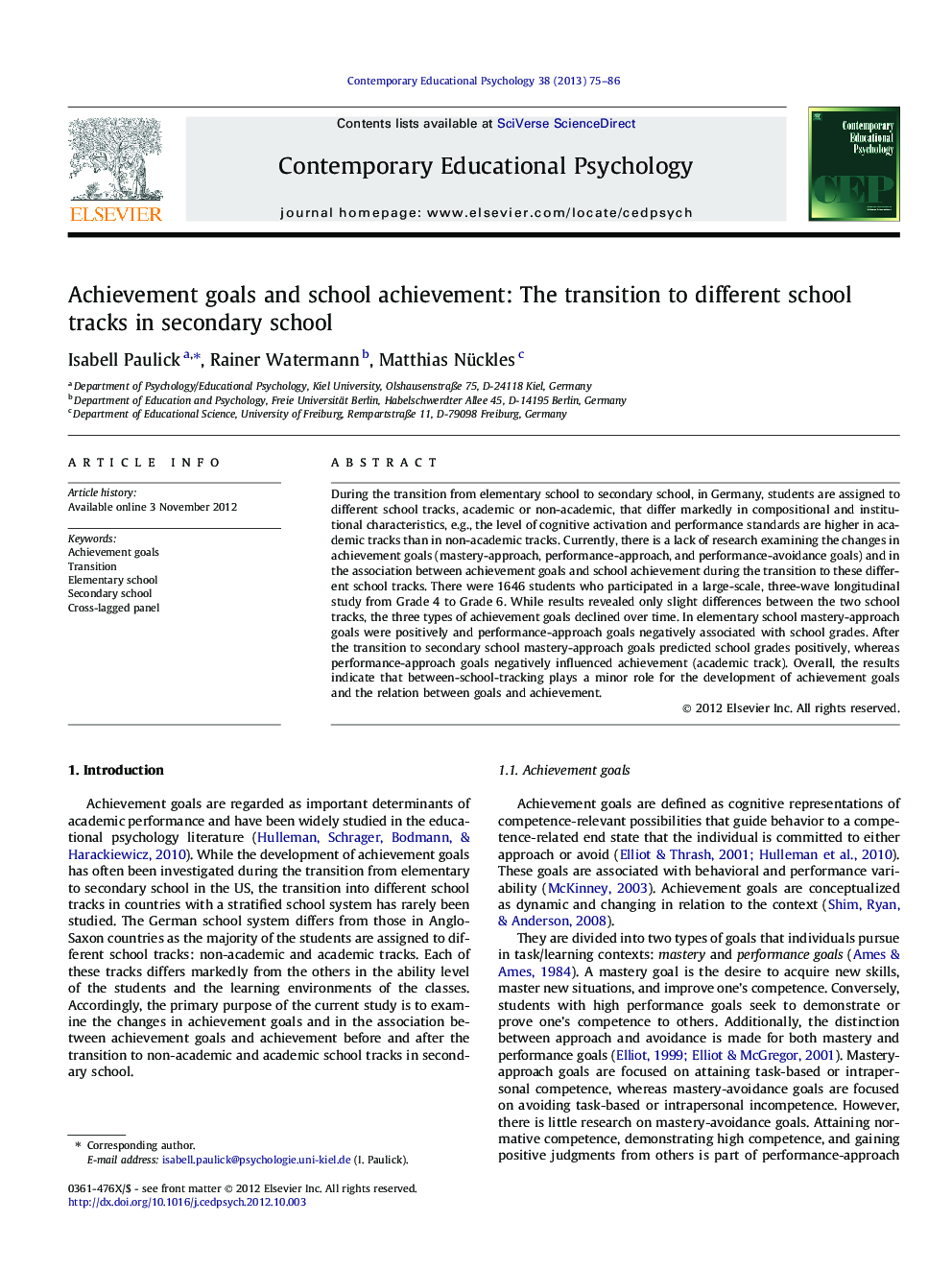| Article ID | Journal | Published Year | Pages | File Type |
|---|---|---|---|---|
| 352679 | Contemporary Educational Psychology | 2013 | 12 Pages |
During the transition from elementary school to secondary school, in Germany, students are assigned to different school tracks, academic or non-academic, that differ markedly in compositional and institutional characteristics, e.g., the level of cognitive activation and performance standards are higher in academic tracks than in non-academic tracks. Currently, there is a lack of research examining the changes in achievement goals (mastery-approach, performance-approach, and performance-avoidance goals) and in the association between achievement goals and school achievement during the transition to these different school tracks. There were 1646 students who participated in a large-scale, three-wave longitudinal study from Grade 4 to Grade 6. While results revealed only slight differences between the two school tracks, the three types of achievement goals declined over time. In elementary school mastery-approach goals were positively and performance-approach goals negatively associated with school grades. After the transition to secondary school mastery-approach goals predicted school grades positively, whereas performance-approach goals negatively influenced achievement (academic track). Overall, the results indicate that between-school-tracking plays a minor role for the development of achievement goals and the relation between goals and achievement.
► We examine changes in achievement goals at the transition to secondary school. ► Differences between different school tracks: academic and non-academic track schools. ► Decline in all types of achievement goals after the transition. ► Relation between achievement goals and school achievement at the different tracks. ► Performance-approach goals negatively predicted school achievement.
